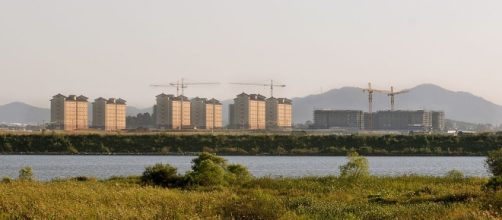US troops in South Korea are being relocated to a base further down from the de-militarized zone. The new base, Camp Humphrey in Pyeongtaek, 40 miles away from Seoul, will now house the entire American military contingent in South Korea.
Why relocate troops away from the de-militarized zone?
The relocation has been planned since 2003, but it was only this year that troop movements were initiated. This is due to the increased tension in the area and the apparent North Korean threat on northern cities like Seoul. Though the relocation may be deemed as a retreat from the front line, some analysts view this as a strategic move.
Seoul is in range of the DPRK's long range artillery and being caught up in a sudden barrage will be catastrophic for US troops. This is part of the reason why having a base far beyond the artillery shells of the enemy is strategically sound.
Status of US defensive strength in South Korea
At the moment, the THAAD (Terminal High Altitude Area Defense) system is fully operational and effectively provides an umbrella of protection over the entire Korean peninsula from DPRK's missiles. Aside from this, the Uss Carl Vinson is effectively patrolling the seas off Korea and can deliver preemptive strikes at any point.
There is also an estimated 35,000 US soldiers in the peninsula and they are currently being consolidated in Pyeongtaek.
The city will also be the center of operations in South Korea if conflict ensues.
Amidst the buildup of US forces in South Korea, China continues to conduct dialogue with North Korea. However, talks with the rogue nation came to an all-time low when foreign ministers of both countries traded threats due to China's desire to convince Pyongyang to abandon its nuclear program.
Relations between the two countries is starting to feel strained as North Korea will not halt its ambition of becoming a nuclear state.
Earlier on Friday, the DPRK's ministry of state security accused the United States and South Korea of planning to assassinate Kim Jong-un by hiring a North Korean assassin. The accusations came after the young tyrant came close to being assassinated using a bio-chemical weapon.
Though reports are still not clear, it may be interpreted as a sign that people within Kim Jong-un's regime are starting to lose confidence. It may only be a matter of time before the North Korean dictator succumbs to a destabilizing force within his own council.


